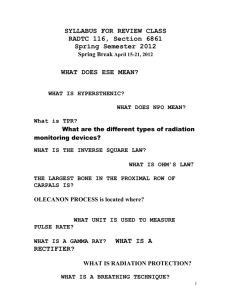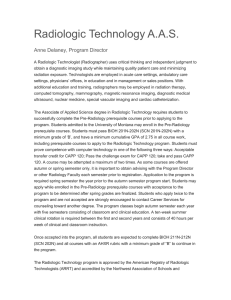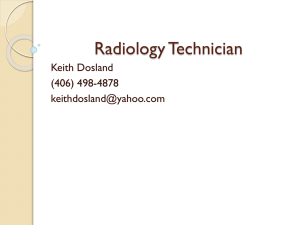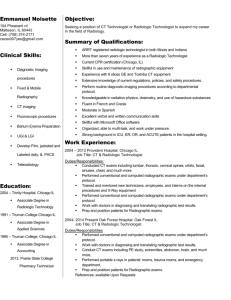MCC Radiologic Technology Program Program mission statement:
advertisement
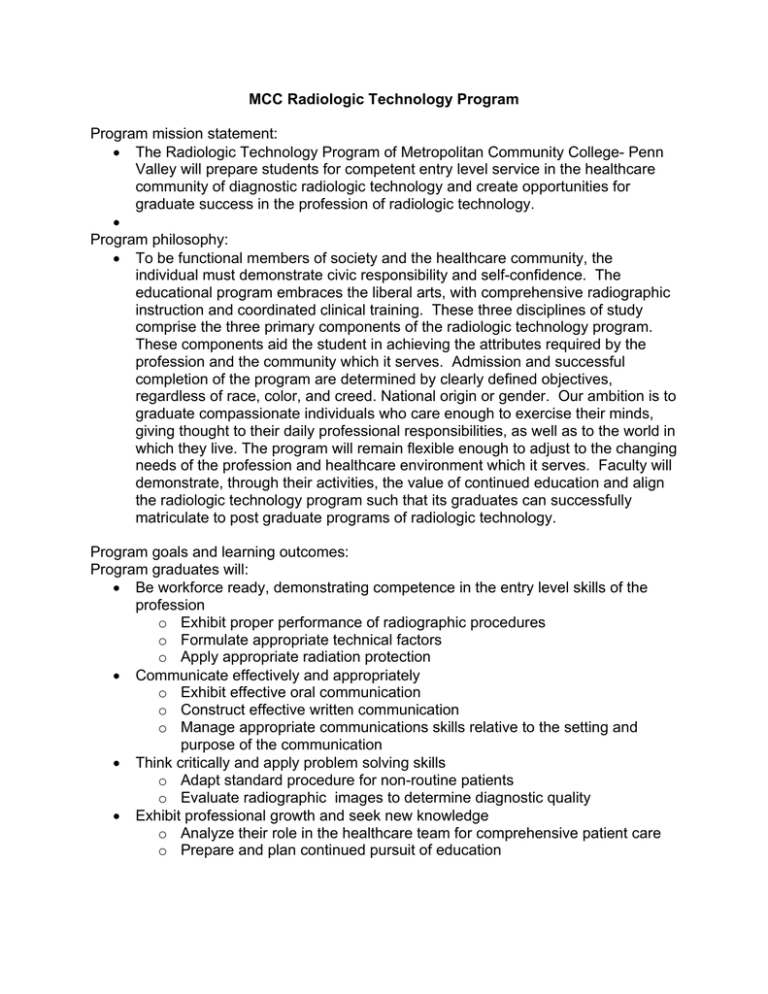
MCC Radiologic Technology Program Program mission statement: The Radiologic Technology Program of Metropolitan Community College- Penn Valley will prepare students for competent entry level service in the healthcare community of diagnostic radiologic technology and create opportunities for graduate success in the profession of radiologic technology. Program philosophy: To be functional members of society and the healthcare community, the individual must demonstrate civic responsibility and self-confidence. The educational program embraces the liberal arts, with comprehensive radiographic instruction and coordinated clinical training. These three disciplines of study comprise the three primary components of the radiologic technology program. These components aid the student in achieving the attributes required by the profession and the community which it serves. Admission and successful completion of the program are determined by clearly defined objectives, regardless of race, color, and creed. National origin or gender. Our ambition is to graduate compassionate individuals who care enough to exercise their minds, giving thought to their daily professional responsibilities, as well as to the world in which they live. The program will remain flexible enough to adjust to the changing needs of the profession and healthcare environment which it serves. Faculty will demonstrate, through their activities, the value of continued education and align the radiologic technology program such that its graduates can successfully matriculate to post graduate programs of radiologic technology. Program goals and learning outcomes: Program graduates will: Be workforce ready, demonstrating competence in the entry level skills of the profession o Exhibit proper performance of radiographic procedures o Formulate appropriate technical factors o Apply appropriate radiation protection Communicate effectively and appropriately o Exhibit effective oral communication o Construct effective written communication o Manage appropriate communications skills relative to the setting and purpose of the communication Think critically and apply problem solving skills o Adapt standard procedure for non-routine patients o Evaluate radiographic images to determine diagnostic quality Exhibit professional growth and seek new knowledge o Analyze their role in the healthcare team for comprehensive patient care o Prepare and plan continued pursuit of education
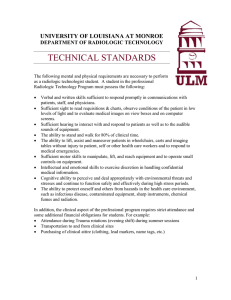
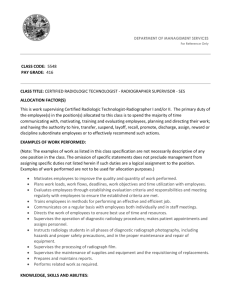
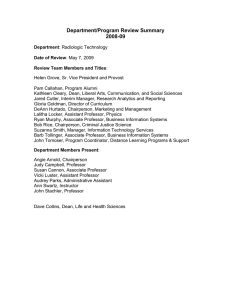
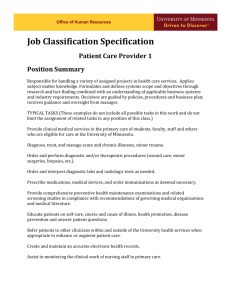
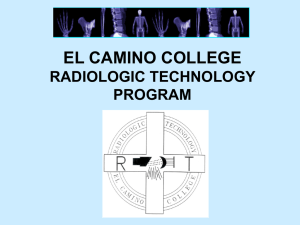
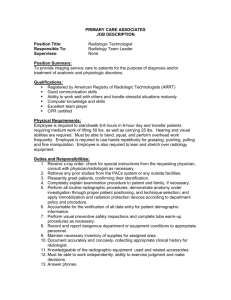
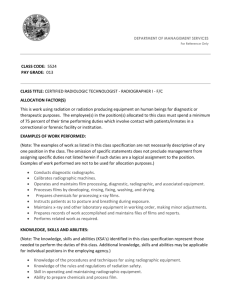
![Physics of Radiologic Imaging [Opens in New Window]](http://s3.studylib.net/store/data/008568907_1-1e7d7b82bfd2882a3a695d3f7c130835-300x300.png)
